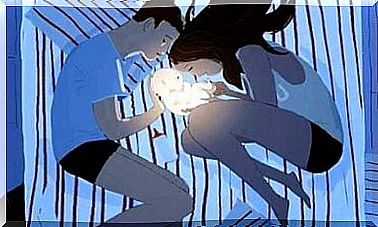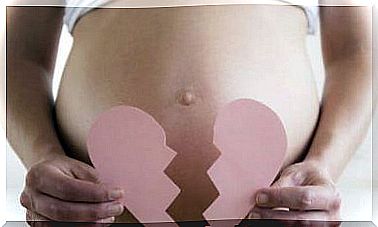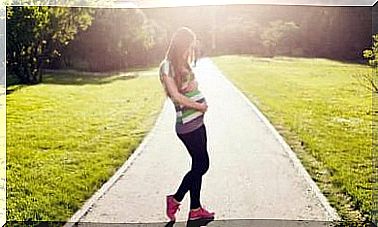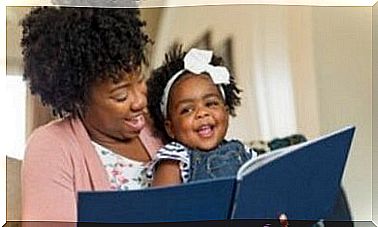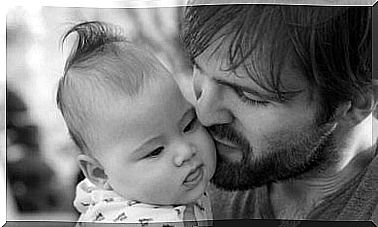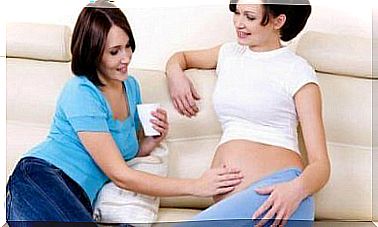Should The Baby Be Bathed Immediately?
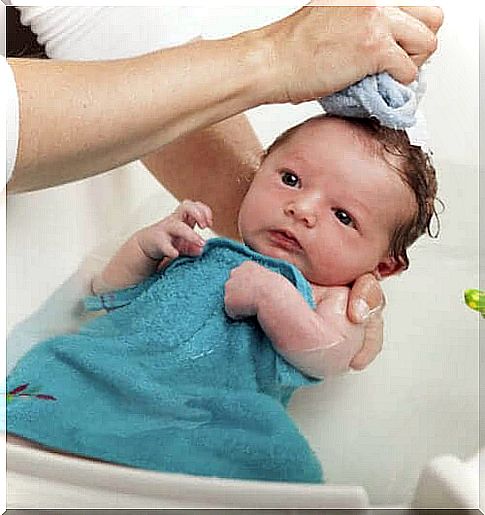
Bathing the newborn baby or not is one of the most common doubts among new parents, especially if they are for the first time. It should be noted that there are different opinions on this; however, science clearly points to the correct answer.
We tend to think that a newborn baby is dirty because it is covered in a gelatinous substance that looks greasy and is strange to the eye. In addition to this, as the skin has a reddish or bluish tint, the baby’s appearance appears even stranger. This color, however, is momentary and the gelatinous substance is not dirt.
This gelatinous and whitish substance that covers the baby’s skin is called vernix and has a very important function: it acts as a barrier against infections. In light of this, many neonatologists disagree about the need to eliminate it right away.
Vernier and its importance
On the surface, vernix has a texture similar to soft cheese or dry cream. It is composed of fatty secretions (which in turn come from the sebaceous glands of the fetus itself) and the remains of dead epidermal tissue, i.e. water, the remains of lanugo, vitamin E and proteins.
During birth, this paint facilitates sliding through the birth canal. Afterwards, it helps to regulate the baby’s body temperature, to keep his skin clean, to prevent skin dryness and possible dermatitis. It is also a powerful antioxidant that protects the skin from the aggressions of ultraviolet rays.
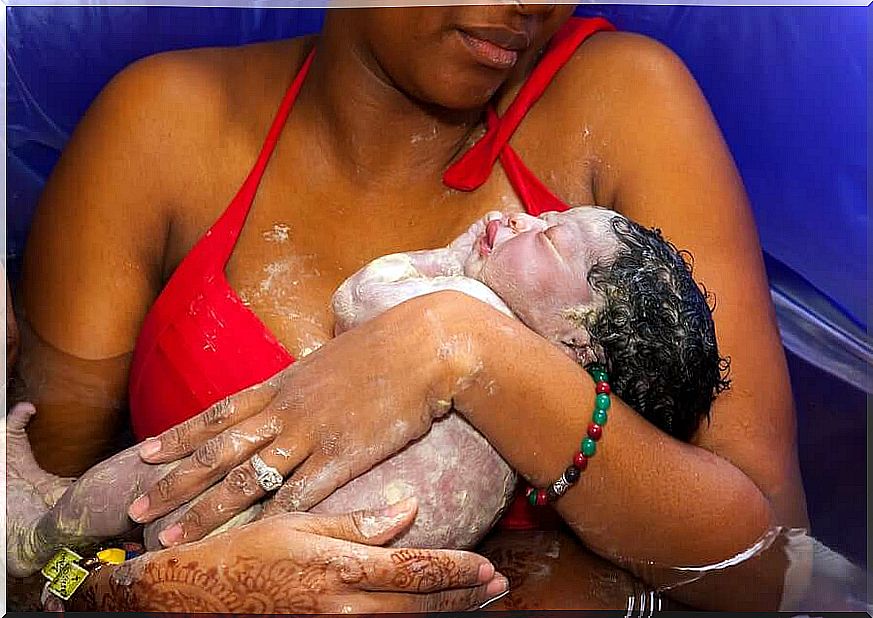
Vernier has the job of protecting the baby’s skin and acts as a barrier to infection. Therefore, the ideal is to wait a few days before bathing the baby.
How to ensure hygiene during the first days of life?
Neonatologists and nurses who attend the birth clean the remains of blood present on the baby at the time of birth. But everything else, in other words the umbilical stump and the varnish, must accompany him for a few days. It follows that even though the baby looks fat and strange, he is not dirty.
There is no need to wash the baby’s head with a sponge and shampoo, to put him in a bathtub with lukewarm water or to clean his ears, indeed these actions are contraindicated. During the first days of life, hygiene should only be based on :
- Frequent diaper change (cleaning of the area should be done with wet wipes).
- Cleaning the mouth after breastfeeding.
- To remove meconium (the baby’s first dejection), it is recommended to moisten a towel with warm water and gently apply it to the soiled area for a few minutes. This way, the dirt will soften and can be removed easily without rubbing the skin.
When should I bathe my baby for the first time?
The first bath must be done after the first week of the baby’s life, when the paint with which he was born is not so indispensable; moreover, after this period of time, it can start to give off a bad smell together with environmental dirt, feces and urine. Therefore, there is no fixed day to tell mothers “Today you can bathe your baby”. Every parent must be able to guess when and how to proceed with regard to the hygiene of their children.
However, we would like to point out the following: it is advisable to let the paint perform its function during the first few days. Over time, some of it will be absorbed and the other will fall off due to the rubbing of diapers and clothes. It is therefore not recommended to bathe the newborn within a few hours.
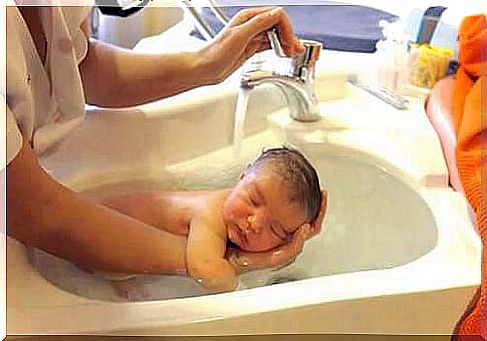
Valid motivation for not bathing the baby
If you remove vernix with the intention of cleaning the baby, it is good to know that the little one will be more vulnerable to infection. In other words, if the baby is washed as soon as it is born, it is deprived of an antimicrobial barrier. Two of the complications of this action are the onset of allergies or dermatitis (at the present time or in the future).
In addition, after the vernix is removed, the baby’s skin will lose its water balance and be more prone to injuries, such as abrasions. Also take into account the fact that vernix does not fall off easily and that, in an attempt to clean it, it rubs the skin of the newborn and injures him.
